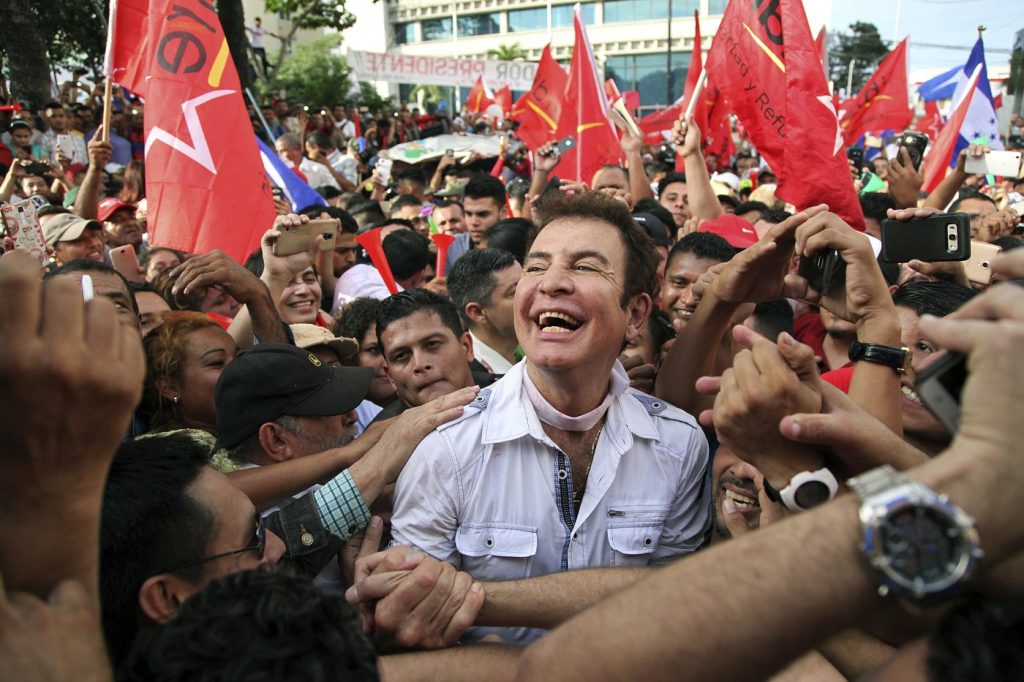TEGUCIGALPA, Honduras (AP) – On Sunday, voters in Honduras will make their selections among candidates from the three main political parties as they prepare for the general election scheduled for November. The country is currently marked by deep polarization and a general skepticism towards leaders from both the left and right, who have struggled to address critical issues of security and economic stability.
This election takes place against the backdrop of President Xiomara Castro, who is the first female leader of Honduras and hails from the leftist LIBRE party. Her administration has seen a strained relationship with the United States, particularly after she floated the idea of withdrawing U.S. access to a strategically important air base and considered dissolving an extradition treaty that resulted in her predecessor being sent to the U.S. on drug trafficking charges. Castro's family has also faced allegations of connections to drug traffickers.
U.S. Secretary of State Marco Rubio notably omitted Honduras from his itinerary during his inaugural trip to Central America, signaling ongoing diplomatic tensions. On Sunday, voters have the option to support Rixi Moncada, Castro's defense minister, who has the president's backing yet faces criticism for not resigning her position while campaigning, especially since the military is tasked with guarding the election ballots.
Meanwhile, Ana García, the former first lady, aims to secure the nomination from the National Party of Honduras. Her husband, Juan Orlando Hernández, a former president, is currently serving a 45-year prison sentence in the U.S. for drug trafficking. García has reinforced her campaign by playing a recording of Hernández, stating, “A vote for Ana is a vote for me, a vote for a better life.”
The Liberal Party of Honduras showcases a competitive race between two prominent figures, Salvador Nasralla and Jorge Cálix, who were once allies of Castro but are now opponents. Nasralla previously aided Castro's victory in the 2021 elections but later distanced himself from her administration, claiming he had been marginalized. He has expressed admiration for Argentina's libertarian president, Javier Milei.
On the other hand, Cálix, a young lawyer and politician, has emerged as a contender advocating for tougher security measures, aiming to replicate the reputation of Nayib Bukele, El Salvador's president, who is known for his stringent policies. “If a millennial did it in El Salvador, why can’t another millennial like me do it here?” Cálix has asserted.
In total, 10 candidates will vie for the nominations across these three main parties, while 11 smaller parties will also select their candidates independently at different times. Voters participating in the primary process will also cast ballots for congressional and mayoral seats, with about 5.8 million Hondurans eligible to vote.
Historically, participation in these open primaries has been low, primarily due to fears that affiliation with one political party could jeopardize employment opportunities should a rival party emerge victorious in the general elections. Political analyst Miguel Cálix has remarked on his hope for a transparent primary process, acknowledging that past elections have experienced significant irregularities. “The primary votes historically have been the worst electoral exercises in Honduran democracy,” he said.
Amidst pressing issues of security, jobs, corruption, and an ailing healthcare system, Hondurans are eager for concrete proposals. The ongoing lack of foreign investment has exacerbated high unemployment rates, prompting many citizens to seek opportunities elsewhere. Additionally, violence, primarily from street gangs and drug trafficking operations, continues to displace many Hondurans.
Political analyst Luis León has emphasized the significance of the primary elections, stating that they are just as crucial as the general election. “Three candidates for the presidency will emerge, and one of them has the potential to be president,” León noted. He stressed the importance of presenting the best potential candidates capable of addressing the nation’s challenges.










